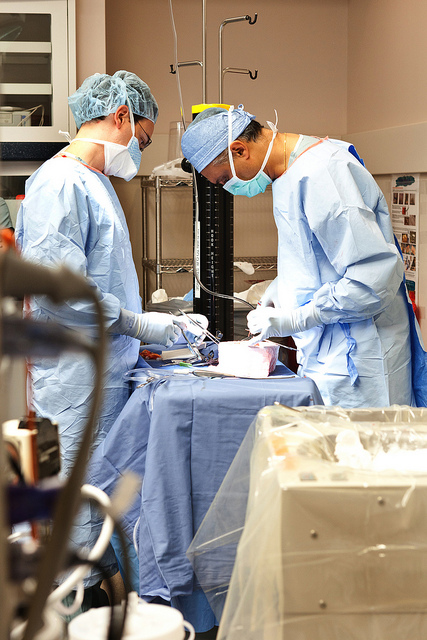
Protein detection could improve liver transplant (Photo Credit: Creative Commons)
A liver transplant is a fragile medical procedure that could determine someone’s chance of surviving advanced liver disease. The number of people in need of liver transplants is increasing faster than the number of available livers. The success of each transplant surgery is vital for the transplant patient. Success of each transplant is also a critical issue for the person who may have been passed over for a liver—only to possibly learn a horrible reality that success hadn’t been realized for someone who got the liver they had desperately hoped for.
Thus, researchers have sought to find ways to predict the chance of patients developing liver damage after a liver transplant.
At the University of Washington, researchers cheered at the discovery of a promising method that tells of the onset of liver damage among patients who undergo liver transplant. Through a protein marker, physicians may be able to foretell how a transplanted liver will fair after the transplant operation.
Researchers found out that there’s a certain gene expression which shows among patients who are at risk of developing fibrosis in their newly transplanted liver. The protein signature appears following the surgery but well before any clinical signs of liver damage.
This discovery is significant as proper monitoring and early detection of liver damage are crucial to ensure a patient’s recovery after a liver transplant. With these protein markers, physicians could develop a highly personalized treatment for liver transplant patients.Most cases of liver transplants are done to prevent liver failure due to chronic hepatitis C. However, hepatitis C virus could survive in a person’s bloodstream even after liver transplant. This makes the newly transplanted liver relatively susceptible to liver damage.
In several cases, the transplanted organ became easily infected, while in few instances, the damage to the new liver progressed slowly over years. Another condition that physicians work to prevent is the build-up of fibrous tissues in the new liver that could occur in the first or second year after the transplant procedure.
At present, patients who have undergone liver transplant must regularly go undergo invasive biopsies to continually monitor the condition of their new liver. Patients may also need to take drugs to prevent the persisting hepatitis C virus from damaging the transplanted organ. However, these medications are aggressive, with harsh side effects such as depression, anemia and chronic fatigue. Fingers crossed, the successful use of protein markers could spare liver transplant patients from further discomfort, and help them to start anew.































you’ve got an important blog here! would you wish to make some invite posts on my blog?